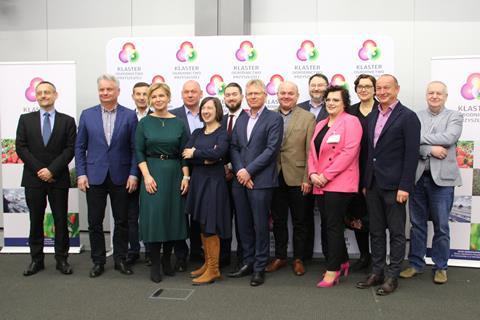Horticulture of the Future Cluster aims to provide a platform for the implementation of innovative technologies on Polish farms
A group of Polish producers have come together with the scientific community to form the Horticulture of the Future Cluster (Klaster Ogrodnictwo Przyszłości).

The Cluster integrates leading fruit growers with the scientific community, and looks to provide a platform for the implementation of innovative technologies across Polish farms.
While the competitive advantages of Polish horticulture, such as relatively low production costs and good availability of labour, were becoming a thing of the past, growers had a plan for the future, according to Cluster coordinator Mirosław Korzeniowski.
“Today we need innovation, energy transformation and cooperation with scientists,” he emphasised.
The Horticulture of the Future Cluster was established by Agronom Berries, Aronia Eggert, Fieldstone Investments II, Polskie Jagody, Horti Team Paweł Krawiec, InnoTech4Life – a special purpose vehicle of the Warsaw University of Life Sciences, the Institute of Soil Science and Plant Cultivation – National Research Institute, and the Agroekoton Association.
Cooperation in the Cluster took place on several levels, it outlined, with its main task to search for innovative, sustainable solutions that would allow members to develop a competitive advantage on domestic and international markets.
To this end, a Horticultural Innovation Hub had been established within the Cluster, the statement noted, where new technologies such as production systems using renewable energy would be tested for the needs of the members and the entire industry.
Further biologisation and implementing precision agriculture was described as a “big challenge”.
Therefore, the Cluster said it would introduce agriculture 4.0 solutions for reducing water use, sustainable fertilisation and plant protection and was open to working with suppliers of innovative solutions for sustainable fruit production.
Members also foresaw increasingly close cooperation in logistics and building a stronger position towards retail chains.
”Energy transition is definitely a hot topic,” said Korzeniowski. ”Each member of the Cluster already has photovoltaic installations in place or under development, but further investments and comprehensive projects are needed, eg involving energy storage.
”We are in talks to set up cooperatives and energy clusters, because such integration gives us the chance to reduce costs,” he added. ”Ultimately, we want to achieve energy independence based on low-carbon, renewable energy sources.”



